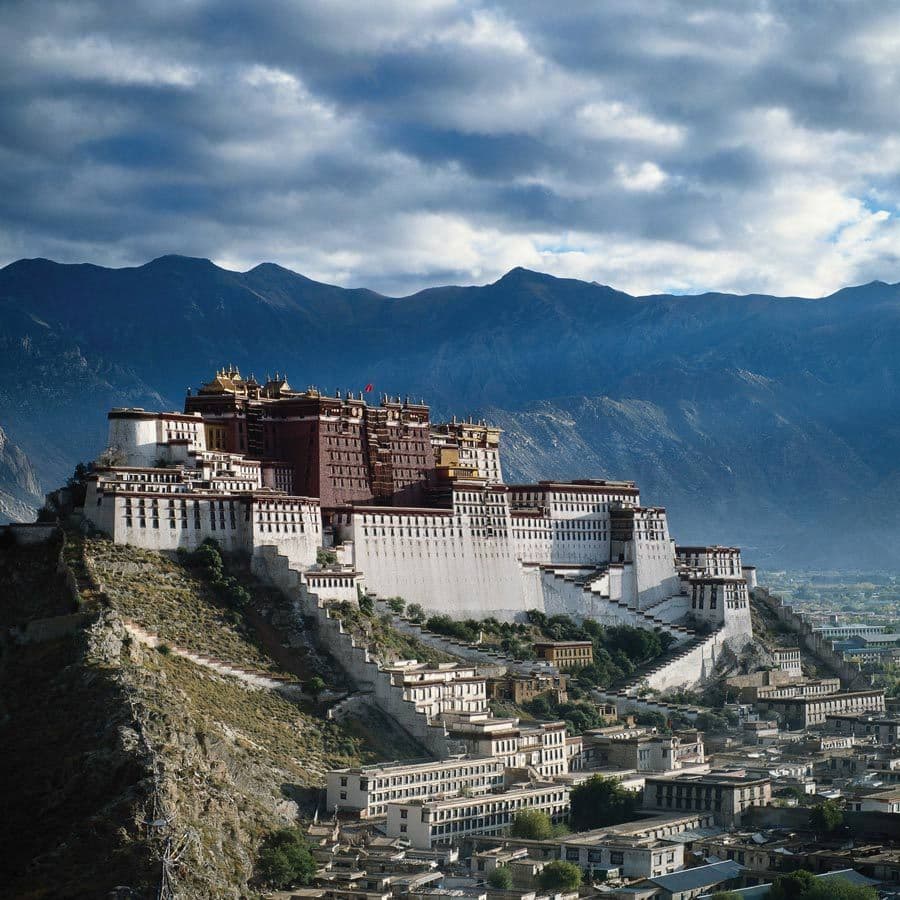
Potala Palace
An iconic symbol of Tibet, this majestic palace complex served as the Dalai Lama's winter residence and seat of government.
Highlights
Must-see attractions
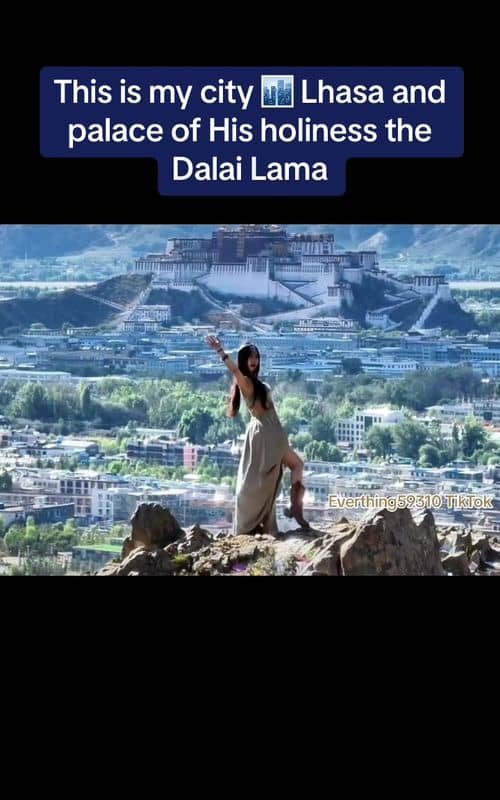
Social
From TikTok & Reddit
Best Time
Pleasant weather, fewer crowds

Potala Palace
Best Time
Pleasant weather, fewer crowds
Highlights
Must-see attractions
An iconic symbol of Tibet, this majestic palace complex served as the Dalai Lama's winter residence and seat of government.
"Visiting the Potala Palace in Tibet was an unforgettable experience. The architecture is absolutely stunning."
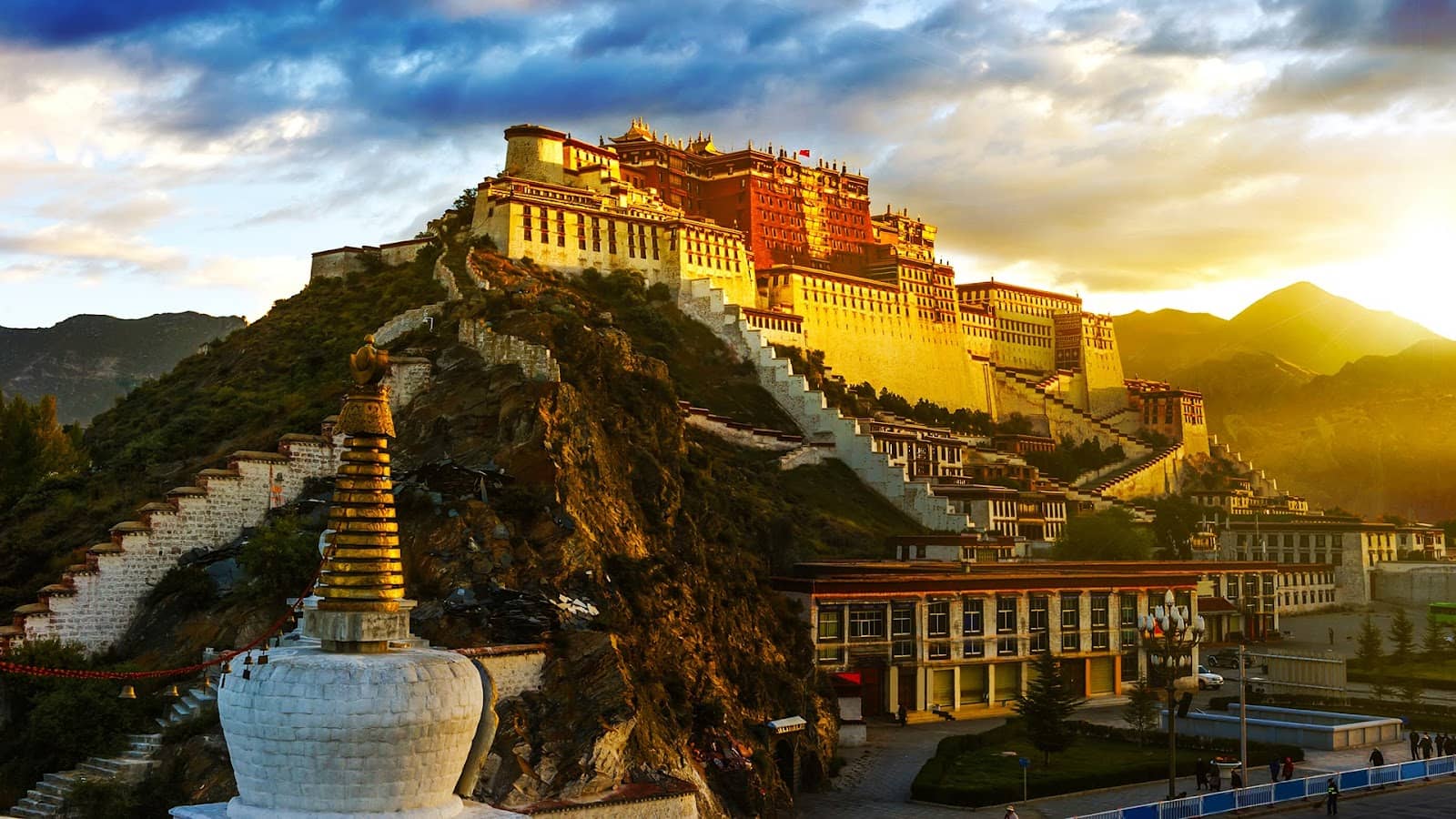
Book Ahead for Entry
Daily visitor numbers are limited. Book tickets in advance to guarantee your visit.
Wear Comfortable Shoes
Be prepared for many stairs! Comfortable footwear is essential for exploring the palace.
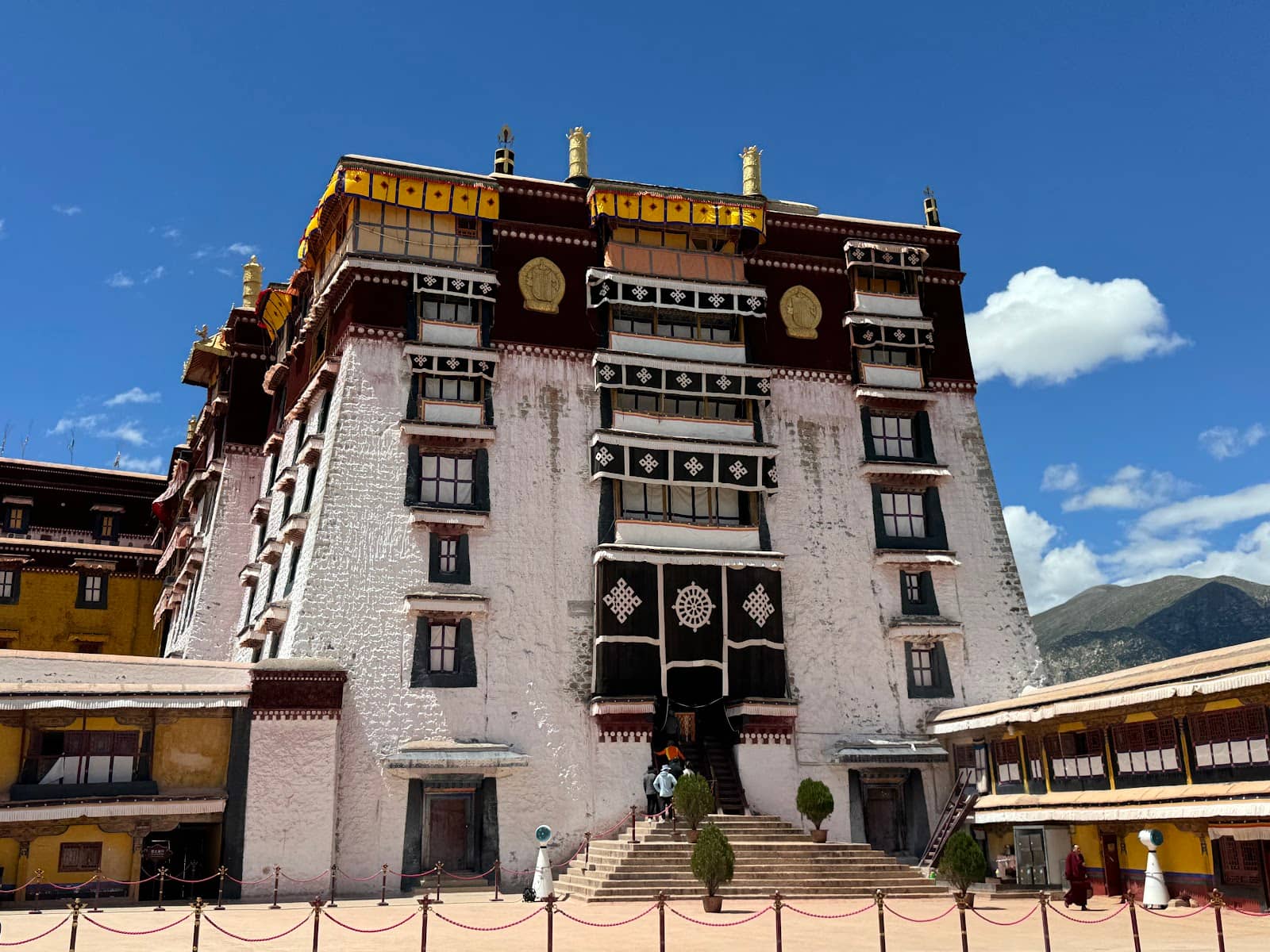
Highlights
Discover the most iconic attractions and experiences

The Red Palace
Upper levels
Explore the Dalai Lama's former living quarters, chapels, and reception halls, adorned with intricate murals and sacred artifacts.

The White Palace
Lower levels
Discover the administrative heart of the palace, featuring assembly halls and the Dalai Lama's study.
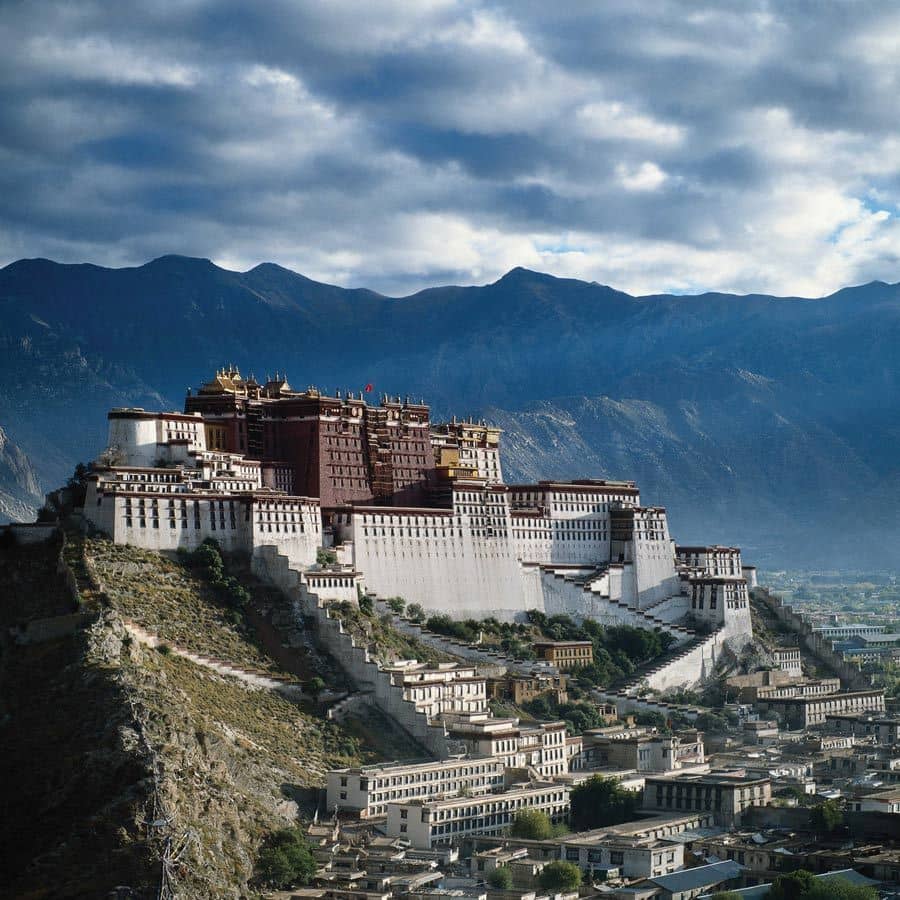
The Milk Wall
Exterior base
Taste the legend of the sweet, milk-splashed walls, a unique tradition for visitors.

Panoramic Lhasa Views
Terraces
Ascend to the top for breathtaking vistas of Lhasa city and the surrounding Tibetan plateau.
Plans like a pro.
Thinks like you
Planning Your Visit
Book Tickets in Advance
Respectful Attire & Behavior
Best Times
Insider Tips
from TikTok, Instagram & Reddit
Book Ahead for Entry
Daily visitor numbers are limited. Book tickets in advance to guarantee your visit.
Wear Comfortable Shoes
Be prepared for many stairs! Comfortable footwear is essential for exploring the palace.
Respect Photography Rules
Photography is prohibited in many interior areas. Be mindful and follow all signage.
Acclimatize to Altitude
Lhasa is at high altitude. Take it easy on your first day to adjust.
Tips
from all over the internet
Book Ahead for Entry
Daily visitor numbers are limited. Book tickets in advance to guarantee your visit.
Wear Comfortable Shoes
Be prepared for many stairs! Comfortable footwear is essential for exploring the palace.
Respect Photography Rules
Photography is prohibited in many interior areas. Be mindful and follow all signage.
Acclimatize to Altitude
Lhasa is at high altitude. Take it easy on your first day to adjust.
Taste the Milk Wall
Don't miss the unique experience of tasting the sweet, milk-splashed walls.
What Travellers Say
Reviews Summary
Visitors consistently praise Potala Palace for its breathtaking architecture, immense historical significance, and profound spiritual atmosphere. The panoramic views of Lhasa are a major highlight, offering a unique perspective on the city. However, some find the strict time limits and photography restrictions a bit disappointing, and the high altitude can be a challenge for some.
"The Potala Palace is one of the most famous and impressive palace in the world.
At the beginning, there was only a cave where the Dalai Lama used to practice meditation.
Over the centuries, it developed into 3 red Towers, a fortress and finally the house of the several Dalai Lama - 14 - until 1959.
It was originally built by the 5th Dalai Lama , Lobsang Gyatso - 1617-1682.
There are 800 hundred steps to reach the 13 levels to the top but you can take your time and admire the view over Lhassa.
A small number of monks are still living there but the actual Dalai Lama had to leave to India - Dharamsala - during the uprising of the Tibetans against China in 1959.
The upper part is of course the nicest with the meditation room of the Dalai Lama, the room for the reception of officiels and the square for helding ceremonies and rituals.
Actually, it is mainly a site- museum visited by tourists more than a place of spirituality."
Oliver K
"Visiting the Potala Palace in Tibet was an unforgettable experience. The architecture is absolutely stunning—majestic, intricate, and unlike anything I’ve seen before. Perched high above Lhasa, it offers breathtaking views and a deep sense of history and spirituality. Walking through its halls filled with ancient artifacts, murals, and sacred spaces was both moving and inspiring. It’s truly one of the most beautiful and unique landmarks in the world—a must-visit for anyone traveling to Tibet."
Mohamed Badr
"We were lucky to be one of the last visitors before Potala Palace closed for the preparation of the 60th anniversary celebration of Tibet as an autonomous region.
There are lots of stairs and steps to climb so do be careful. As with the major religious attractions in Tibet, no photography is allowed in the main halls and rooms. No skimpy outfits and make sure your shoulders and knees are not on show."
M
What People Like
What People Dislike
Frequently Asked Questions
🚇 🗺️ Getting There
Potala Palace is located in the heart of Lhasa. You can reach it by taxi or local bus from most parts of the city. Many visitors also choose to walk if their accommodation is nearby.
Yes, local buses frequently run to the vicinity of Potala Palace. Taxis are also readily available and offer a convenient way to get there.
Potala Palace is situated at a high elevation of approximately 3,650 meters (12,000 feet) above sea level.
If you are staying in central Lhasa, walking to Potala Palace is a pleasant option and allows you to soak in the city's atmosphere.
Yes, many tour operators in Lhasa offer guided tours that include Potala Palace, often as part of a larger Tibet itinerary.
🎫 🎫 Tickets & Entry
Tickets for Potala Palace must be booked in advance, as there's a daily visitor limit. You can often book through your hotel, a local travel agency, or sometimes online.
Opening hours can vary seasonally and may be affected by special events. It's best to check the most current hours when booking your tickets. Generally, it opens in the morning and closes in the late afternoon.
Ticket prices can fluctuate, but typically range from ¥200 to ¥300 RMB for foreign visitors. It's advisable to confirm the exact price at the time of booking.
Yes, visitors are usually allocated a specific time slot and have a limited duration, often around 1 hour, to explore the palace to manage visitor flow.
While Potala Palace itself doesn't require a separate permit beyond your entry ticket, foreign visitors to Tibet generally need a Tibet Travel Permit, which is usually arranged by tour agencies.
📸 📸 Photography
Photography is strictly prohibited inside most of the main halls and rooms within Potala Palace due to the preservation of ancient artifacts and religious sensitivities.
The best exterior photos are often taken from the viewing platforms opposite the palace, or from the surrounding squares. The palace looks stunning at different times of day, especially during sunrise and sunset.
Drone usage is generally prohibited in and around Potala Palace and most sensitive cultural sites in Tibet due to security and preservation concerns.
Early morning or late afternoon light offers beautiful illumination for exterior shots. The palace is also dramatically lit at night.
Similar to photography, filming is also restricted in many interior areas. Always check for specific signage and guidelines.
🎫 🚶 Onsite Experience
There are approximately 800 steps to reach the highest levels of Potala Palace, spread across its 13 stories. Take your time and enjoy the journey.
Dress modestly, covering your shoulders and knees, out of respect for the religious nature of the site. Avoid revealing clothing.
Due to the numerous stairs and high altitude, Potala Palace can be challenging for those with significant mobility issues. Some areas may be inaccessible.
The 'Milk Wall' refers to sections of the palace exterior that are traditionally splashed with milk, and some visitors taste it, believing it to be sweet.
A small number of monks still reside in Potala Palace, though it is primarily a museum and historical site.
🍽️ 🍽️ Food & Dining
There are no restaurants or food services inside Potala Palace itself. You'll need to eat before or after your visit in Lhasa.
The area around Potala Palace in Lhasa offers a variety of Tibetan, Chinese, and some international cuisine. You can find local eateries serving momos, thukpa, and other Tibetan specialties.
It's generally advisable not to bring food or drinks inside the palace, especially for consumption within the historical areas. Water is usually permitted.
Explore the streets and alleys around Barkhor Street, which is a short distance from Potala Palace, for numerous authentic Tibetan restaurants and food stalls.
Yes, vegetarian options are increasingly available in Lhasa, especially in restaurants catering to tourists. Many Tibetan dishes can be made vegetarian upon request.
For Different Travelers
Tailored advice for your travel style
👨👩👧 Families with Kids
Focus on the visual aspects: the vibrant colors of the murals, the unique architecture, and the panoramic views of Lhasa. The legend of the 'Milk Wall' can be a fun talking point for kids. Ensure children are dressed respectfully and understand the importance of quiet behavior inside the palace.
🚶 Budget Travelers
Consider joining group tours for Potala Palace if you're traveling solo, as this can sometimes be more cost-effective than a private tour. Always book your tickets in advance to avoid last-minute price hikes or unavailability.
🙏 Spiritual Seekers
While photography is restricted, the experience of being present in these sacred spaces is paramount. Engage with the history and the religious significance of the site, and allow the profound sense of faith to resonate with you.
Deep Dives
In-depth insights and expert knowledge
A Glimpse into History
Despite surviving numerous historical upheavals, including the Cultural Revolution, the palace stands as a UNESCO World Heritage Site, preserving invaluable religious and historical artifacts. It's a symbol of Tibetan Buddhism and a crucial landmark for understanding the region's rich cultural heritage.
Today, while still a place of pilgrimage for many, it functions largely as a museum, offering visitors a profound connection to Tibet's past. The sheer scale and architectural ingenuity are awe-inspiring, reflecting a deep spiritual devotion and a unique cultural identity.
Architectural Marvel
The construction itself is remarkable, utilizing stone, wood, and earth. The exterior walls, particularly those of the White Palace, are traditionally splashed with milk, a practice that has led to the popular name 'Milk Wall.' The palace's strategic location offers commanding views of Lhasa, underscoring its historical importance as a fortress and a spiritual center.
Inside, visitors can marvel at the intricate murals depicting Buddhist teachings and historical events, as well as numerous statues and sacred relics. The sheer scale and the detailed craftsmanship throughout the palace are a testament to the skill and devotion of its builders.
Spiritual Significance
Even today, despite the political complexities, the palace continues to inspire awe and devotion. Visitors often describe a profound sense of peace and spirituality upon entering its sacred spaces. The atmosphere is often described as one of deep faith, where centuries of prayers and rituals have left an indelible mark.
The palace's role in preserving Tibetan Buddhist culture is immense. It houses a vast collection of religious texts, art, and artifacts that are crucial to understanding the evolution and practice of Tibetan Buddhism.
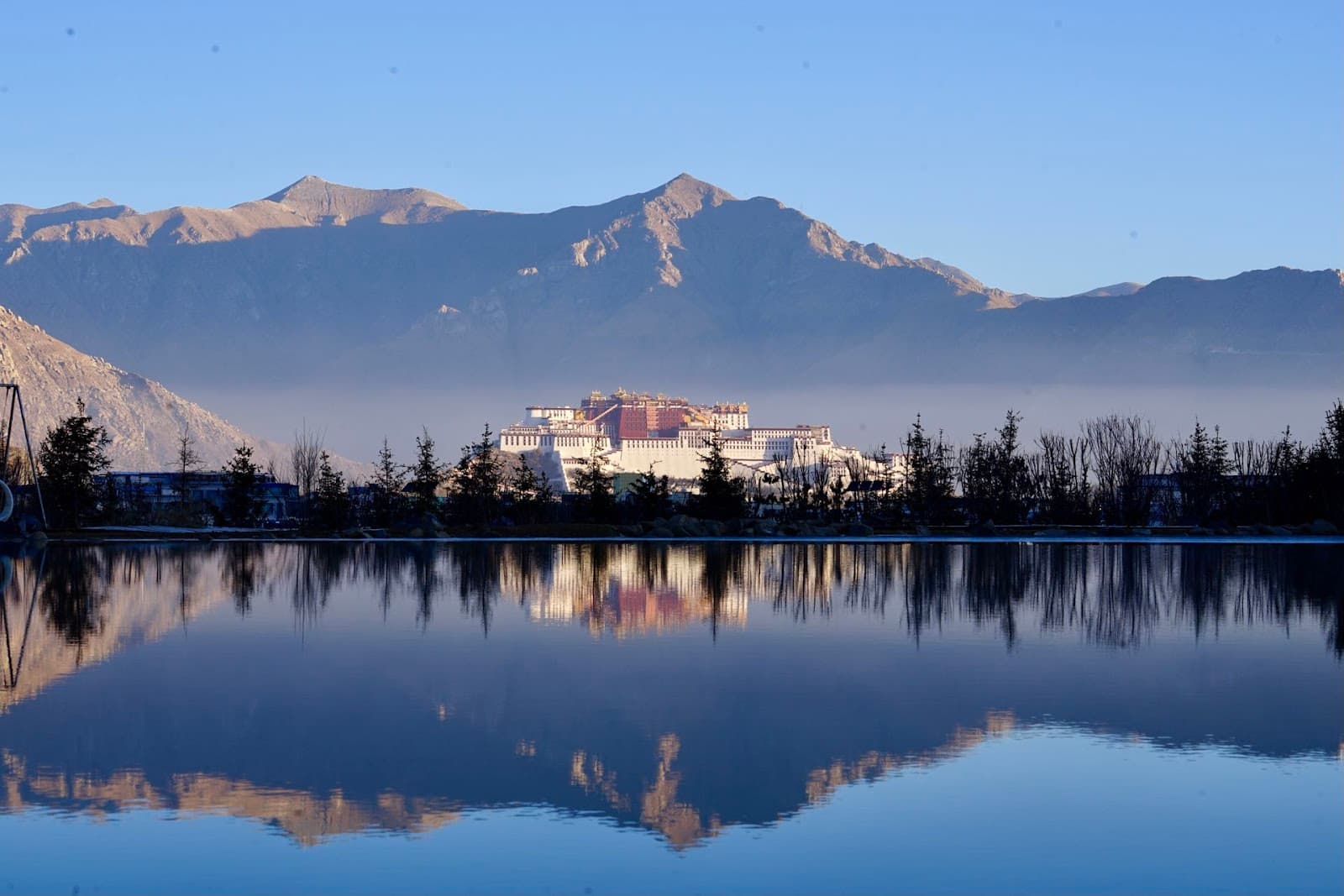
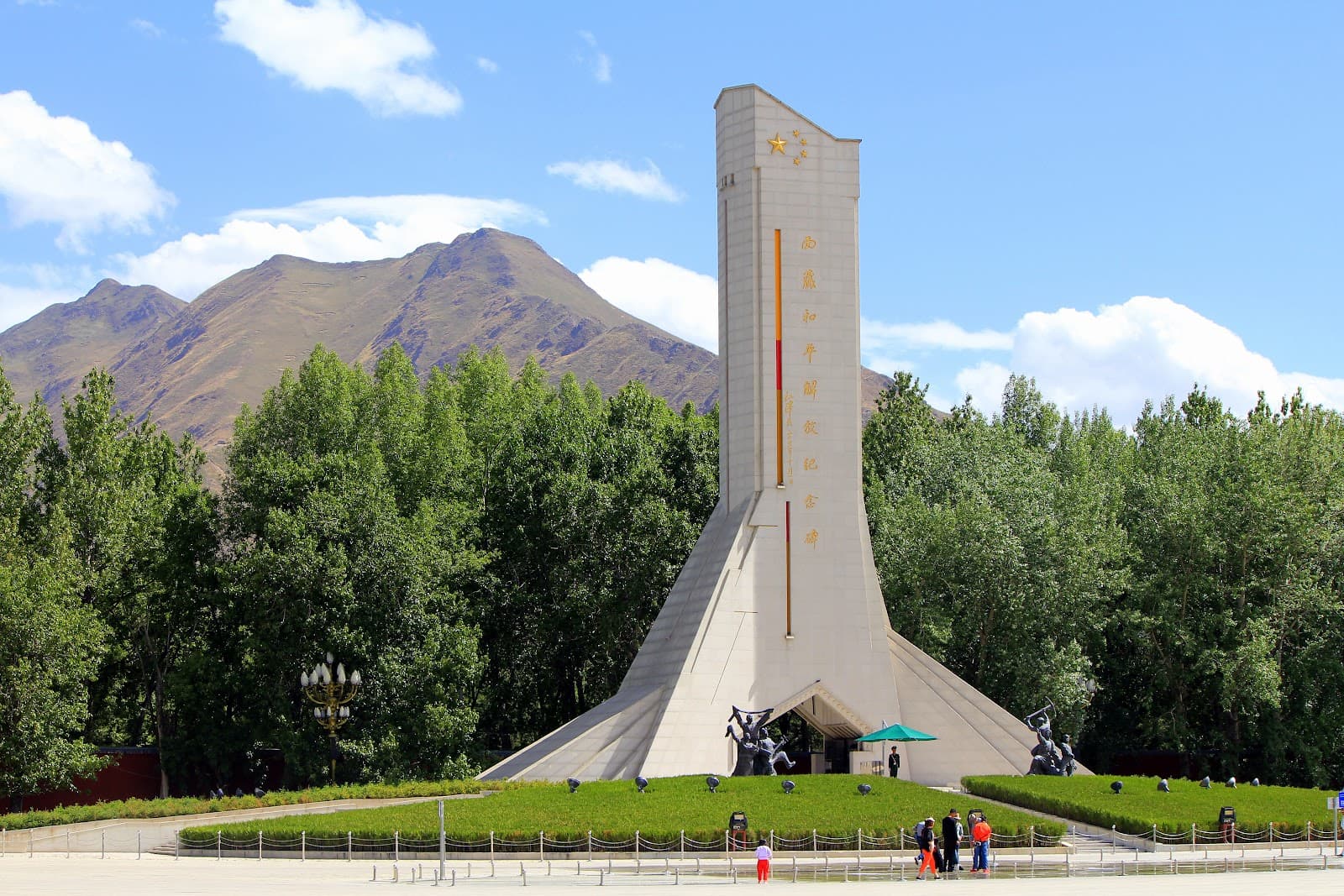
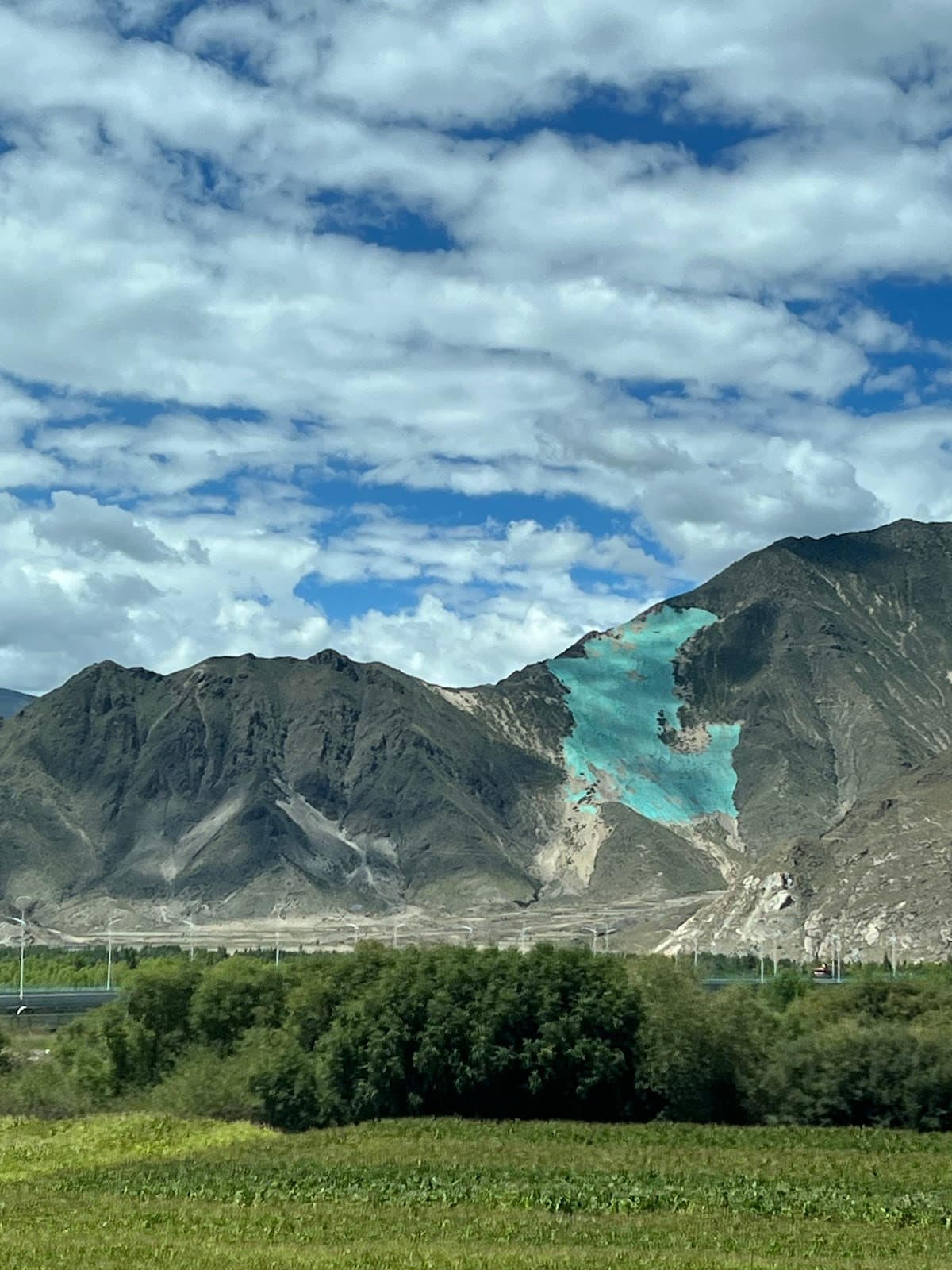
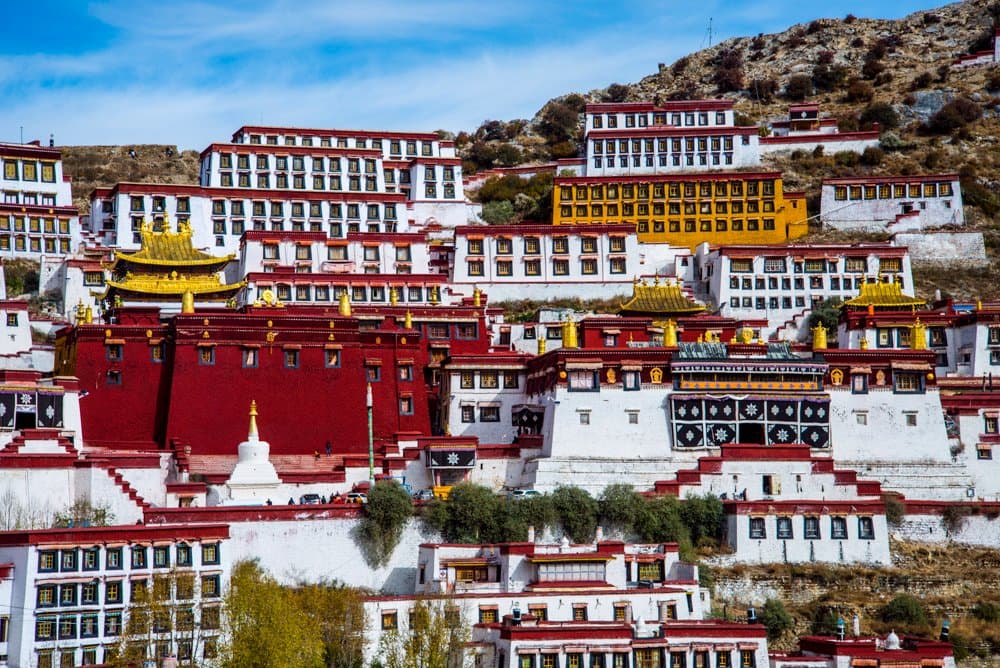


Social
from TikTok, Instagram & Reddit